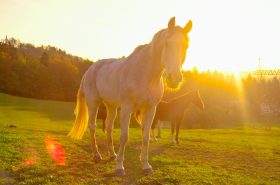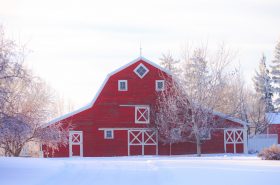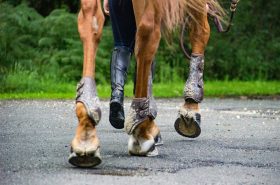Horse owners understand that managing the health and well-being of their equine companions involves a multifaceted approach, with deworming playing a crucial role.
However, not all deworming protocols are created equal, and what works for one horse or region may not be appropriate for another. This article delves into the reasons behind deworming horses and emphasizes the importance of consulting with a veterinarian to develop a plan tailored to your horse’s specific needs and your area’s conditions.
Why Deworm Horses?
Parasitic infections can be detrimental to a horse’s health, leading to issues ranging from weight loss, colic, and lethargy, to more severe gastrointestinal problems, and even death. Common parasites like roundworms, tapeworms, and strongyles can silently compromise a horse’s well-being. Regular deworming helps control these internal parasites, ensuring your horse remains healthy, active, and able to absorb the full nutritional value from their diet.
However, indiscriminate deworming can lead to drug resistance, making parasites harder to control over time. This is why tailored deworming protocols are crucial.
Tailored Deworming Protocols
The ‘one-size-fits-all’ approach to deworming is outdated and potentially harmful. Instead, deworming programs should be customized based on factors such as the horse’s age, immune status, environment, and the parasite load (which can be determined through fecal testing), as well as local climate and the parasites’ life cycles.
Here are several reasons why tailored deworming protocols are essential:
- Reduce Drug Resistance: Overuse of dewormers has led to an increase in drug-resistant parasites. By using these medications only when necessary, we can help slow the development of resistance.
- Targeted Treatment: Different parasites pose risks at different times of the year and in different geographic locations, and different deworming medications treat different parasites. A tailored program ensures that treatment is targeted and effective, based on fecal egg counts and other diagnostic tools.
- Cost-Effective: By avoiding unnecessary treatments, horse owners can save money on deworming products and reduce the risk of adverse reactions in their animals.
- Overall Health: A horse with a low parasite burden will generally be healthier, perform better, and be less likely to suffer from the complications associated with parasitic infections.
Consulting Your Veterinarian
Every region has its unique parasite challenges, and what is necessary for one area may be excessive or insufficient in another. This is why it’s critical to consult with a local veterinarian who is familiar with the parasites common to your area and can recommend a deworming schedule based on actual risk.
Your veterinarian can perform fecal egg counts to determine the level of infestation and recommend deworming products that are effective against the specific parasites present. They can also advise on other management practices to reduce the overall parasite load in the environment, such as proper manure management and pasture rotation.
Deworming is a vital part of equine health care, but it’s not as straightforward as following the instructions on a box. Developing a deworming protocol tailored to your horse’s individual needs and local conditions is essential for maintaining their health and preventing the spread of drug-resistant parasites. By working closely with your veterinarian, you can ensure that your deworming strategy is both effective and sustainable, keeping your horse healthy and happy for years to come.



